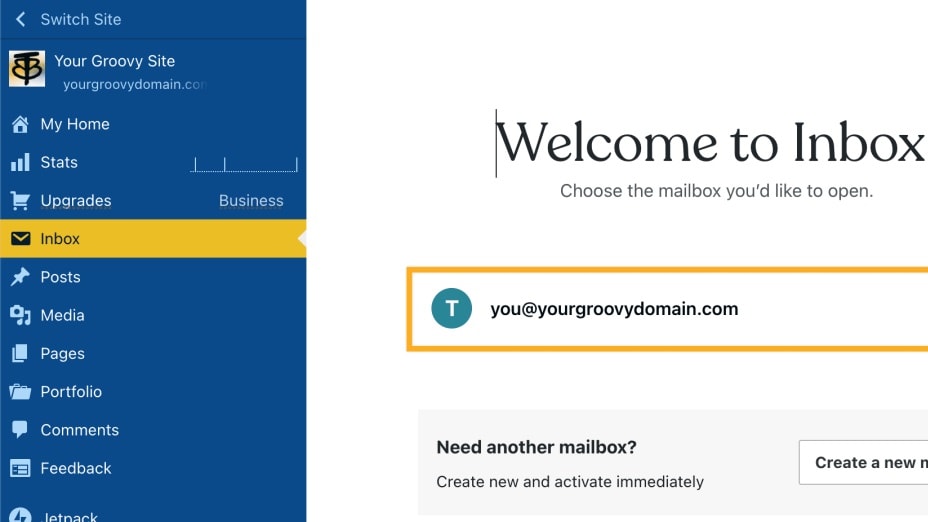ClickFunnels vs WordPress: Choosing the best tool for your business
- 01ClickFunnels vs WordPress.com: overview
- 02What's the difference between ClickFunnels and WordPress.com?
- 03ClickFunnels pros and cons
- 04WordPress.com pros and cons
- 05ClickFunnels compared to WordPress.com
- 06WordPress.com compared to ClickFunnels
- 07Features comparison
- 08ClickFunnels vs WordPress.com: Which is the best for your business?
- 09Promotions on Email Marketing software
- 10Alternatives to ClickFunnels & WordPress.com
Save up to $197 on ClickFunnels
Save up to $197 on ClickFunnels
When selling products or services online, it’s essential to have access to top-notch tools to enhance sales, including website and sales funnel builders. Finding the right solution can help drive website traffic, increase conversions, and ultimately boost your sales.
ClickFunnels and WordPress are two such tools for building websites, landing pages, online stores, and sales funnels. But they both have unique features and their strengths and weaknesses, which depend on your intended use. In this article, we look at some of the main differences between the two platforms to help you make an informed choice and find the best solution for your business.
ClickFunnels vs WordPress.com: overview
ClickFunnels and WordPress are two prominent players in the domain of website and online funnel building platforms, each showcasing its own distinctive set of capabilities designed to cater to the needs of different businesses.
ClickFunnels is recognized for its focused approach to creating and optimizing sales funnels with ease. It offers businesses a streamlined process for building landing pages, sales pages, and checkout flows, all integrated into one cohesive funnel. This ensures that entrepreneurs and marketers can quickly set up conversion-optimized funnels without extensive technical know-how. In contrast, WordPress is a versatile content management system that provides users with the flexibility to design websites, blogs, and e-commerce stores. Its extensive plugin ecosystem allows for a high degree of customization, adapting the platform to a multitude of purposes beyond just blogging.
Now, let's delve into the ClickFunnels vs. WordPress comparison to assist you in making an informed decision when determining the most fitting platform for your specific online presence and marketing needs.
What's the difference between ClickFunnels and WordPress.com?


ClickFunnels and WordPress are user-friendly e-commerce tools that allow you to create websites, sales pages, e-commerce stores, and sales funnels. However, the focus of each product is different and may guide your decision as to which is right for your business. WordPress is a dedicated CMS that accommodates a range of websites, including landing pages and online stores via plug-ins such as WooCommerce. You can also use WordPress to build sales funnels using plug-ins like FunnelKit or WP Funnels. WordPress is a highly customizable platform thanks to the large number of design themes and plug-ins it offers.
ClickFunnels focuses on building sales funnels, but it extends to a broader range of use cases. With ClickFunnels, you can create websites, landing pages, email marketing, online courses, and marketing workflows. You can also build an e-commerce site using ClickFunnels (a dedicated e-commerce feature is in development). The other significant difference between the platforms is the level of customization and control they offer. WordPress offers unparalleled customization thanks to its vast range of design themes and plug-ins—sources suggest WordPress offers over 50,000 plug-ins. This variety allows you to design a website exactly according to your requirements, with complete control over its design and functionality.
However, WordPress’s higher level of customization can involve more of a learning curve and leg work to set up your site. The creation process involves a DIY approach, which can be time-consuming. Compared to WordPress, ClickFunnels offers less customization. While you can tailor ClickFunnel templates to some extent, you are limited by the features and integrations the platform provides. These will be sufficient for many users. Plus, the trade-off is that ClickFunnels is a fully integrated solution that may be easier to familiarize yourself with, especially if you have limited technical experience. This integrated approach also means you can build a website, online store, or sales funnel quickly.
ClickFunnels pros and cons
What are the advantages of ClickFunnels?
- Ease of use: ClickFunnels offers a drag-and-drop interface, making it easy for users, even without a technical background, to create and optimize sales funnels quickly.
- All-in-one solution: ClickFunnels combines landing pages, sales pages, billing, email autoresponders, and more into one platform, eliminating the need for multiple tools.
- Templates and funnel blueprints: Users have access to a range of professionally designed templates and pre-built funnel blueprints tailored for various business needs and industries.
- Affiliate management: The platform provides built-in affiliate management tools, allowing businesses to set up and manage their own affiliate programs.
- Integrated A/B testing: Users can easily perform A/B tests on their funnels, enabling them to optimize for better conversions without needing third-party tools.
What are the disadvantages of ClickFunnels?
- Pricing: ClickFunnels can be considered expensive, especially for startups or small businesses. The pricing increases significantly with premium features and higher tiers.
- Customization limitations: While ClickFunnels offers a lot of templates, there might be limitations in terms of deep customization, especially for users wanting a unique look and feel.
- Occasional glitches: Some users have reported occasional bugs or glitches, especially after updates. This can impact the performance of funnels or the user experience temporarily.
- Limited advanced marketing features: While ClickFunnels is great for creating and managing funnels, advanced users might find it lacking in more complex marketing features and integrations.
- Learning curve: Despite its user-friendly interface, there's still a learning curve, especially for those new to online marketing and sales funnels. The platform offers numerous features, which can be overwhelming for newcomers.
Compare ClickFunnels to other tools
WordPress.com pros and cons
What are the advantages of WordPress.com?
- Flexibility: WordPress is highly versatile and can be used to create a wide variety of websites, from blogs and portfolios to e-commerce sites and enterprise-level portals.
- Open-source: Being open-source, WordPress is freely available to use and modify. This has led to a large and active community that consistently improves the platform and creates plugins and themes.
- Extensive plugin ecosystem: The WordPress repository and various third-party platforms offer tens of thousands of plugins, which allow users to add nearly any functionality to their websites.
- Customizable themes: There's a vast array of both free and premium themes available, enabling users to customize the appearance of their websites easily.
- SEO-friendly: WordPress, by its nature, is very SEO-friendly, and with the addition of plugins like Yoast SEO, users can further optimize their sites for search engines.
What are the disadvantages of WordPress.com?
- Security concerns: Due to its popularity, WordPress often becomes a target for hackers. While the core software is secure, vulnerabilities can arise from outdated plugins, themes, or poor security practices.
- Performance: While WordPress can be optimized for speed, out-of-the-box installations with multiple plugins can become sluggish. Proper optimization and quality hosting are essential.
- Learning curve: While WordPress is user-friendly, there's still a learning curve for complete beginners, especially when diving into themes or plugin customizations.
- Maintenance: Regular updates are released for the WordPress core, plugins, and themes. Managing these updates is essential for security and functionality but can be time-consuming.
- Plugin compatibility issues: With the plethora of plugins available, users may occasionally run into compatibility issues where one plugin interferes with the functionality of another.
Compare WordPress.com to other tools
ClickFunnels compared to WordPress.com
ClickFunnels and WordPress are both website building platforms, but they cater to different needs. ClickFunnels specializes in creating sales funnels, making it a great choice for marketers looking to optimize conversions. It offers pre-built templates and a simplified drag-and-drop editor, making funnel creation accessible.
WordPress, on the other hand, is a versatile content management system used for a wide range of websites, from blogs to e-commerce stores. Its extensive plugin ecosystem allows for deep customization, but this flexibility can come with a steeper learning curve. The choice between ClickFunnels and WordPress depends on your specific goals, with ClickFunnels excelling in funnel optimization and WordPress offering broader website versatility.
Is ClickFunnels better than WordPress.com?
Determining whether ClickFunnels is superior to WordPress depends on your specific website needs. ClickFunnels is a specialized platform designed for creating sales funnels and optimizing conversions. It's ideal for marketers seeking a streamlined and user-friendly approach to funnel building. In contrast, WordPress is a versatile content management system that suits various website types, offering extensive customization and a vast plugin ecosystem.
While ClickFunnels excels in funnel optimization, WordPress provides a broader range of possibilities, making it preferable for those who require diverse website functions beyond sales funnels. Ultimately, the choice hinges on your unique goals and the complexity of your online presence.
What is ClickFunnels best used for?
ClickFunnels is best used for creating and optimizing sales funnels, making it an invaluable tool for marketers and businesses aiming to maximize conversions. It simplifies the process of designing landing pages, sales pages, and marketing funnels, allowing users to easily capture leads and guide them through a structured buying journey.
ClickFunnels offers pre-designed templates, a user-friendly drag-and-drop editor, and integrated tools for email marketing and payment processing. It's particularly beneficial for those looking to boost online sales, promote products, generate leads, or run webinars. ClickFunnels' focus on funnel optimization makes it an ideal choice for businesses seeking to enhance their online marketing and sales efforts.
Can ClickFunnels replace WordPress.com?
Whether ClickFunnels can replace WordPress depends on your website's specific requirements. ClickFunnels is designed for creating sales funnels and optimizing conversions, making it ideal for marketing and lead generation. However, it lacks the versatility of WordPress, which is a full-fledged content management system suitable for various website types, including blogs, e-commerce, and more.
While you can build basic websites with ClickFunnels, it may not handle complex content, extensive blogging, or diverse functionality as well as WordPress. ClickFunnels is a valuable addition to your marketing toolkit, but for a comprehensive web presence, both platforms can complement each other.
Is ClickFunnels cheaper than WordPress.com?
Comparing the cost of ClickFunnels to WordPress isn't straightforward as they serve different purposes. WordPress itself is free and open-source, but you'll incur costs for hosting, domain, themes, and plugins. The expenses can vary significantly depending on your choices and needs.
ClickFunnels’s pricing structure, on the other hand, offers a more structured pricing model, with plans starting at a set monthly fee. While ClickFunnels may appear costlier upfront, it can potentially save time and resources for marketers focused solely on sales funnels. WordPress offers more flexibility but may involve various expenses depending on the complexity of your website.
Is there a better Email Marketing software than ClickFunnels?
When exploring alternatives to ClickFunnels, it's essential to assess if there's a software solution that better aligns with your unique business requirements.
Several noteworthy competitors to ClickFunnels in the realm of sales funnels and marketing automation include Leadpages, Unbounce, Instapage, Kartra, and Thrive Architect.
The selection of a sales funnel and marketing automation platform depends on your specific objectives, the complexity of your sales processes, and the level of customization you require. While ClickFunnels offers a user-friendly approach to funnel creation, other platforms may specialize in particular features, such as advanced A/B testing, e-commerce integrations, or specific industry-focused solutions.
1 month free on the Pro plan on ClickFunnels
Get 1 month free on the Pro plan on ClickFunnels and up to $197 savings with Secret.
WordPress.com compared to ClickFunnels
WordPress and ClickFunnels are distinct website-building platforms serving different purposes. WordPress is a versatile content management system used for various websites, from blogs to e-commerce. It offers extensive customization options through themes and plugins.
In contrast, ClickFunnels specializes in creating and optimizing sales funnels, ideal for marketers seeking to maximize conversions. ClickFunnels simplifies funnel creation with templates and a drag-and-drop editor, streamlining lead generation and sales processes. While WordPress provides broad website versatility, ClickFunnels excels in funnel optimization. The choice between them depends on your specific objectives; WordPress suits diverse web needs, while ClickFunnels is ideal for marketers focused on efficient funnel design and conversion optimization.
Is WordPress.com better than ClickFunnels?
Determining whether WordPress is superior to ClickFunnels depends on your website's specific goals. WordPress is a versatile content management system used for a wide range of websites, offering extensive customization through themes and plugins. It's ideal for businesses requiring diverse functionality beyond sales funnels, such as blogs, e-commerce, and more. ClickFunnels, on the other hand, specializes in sales funnel creation and optimization, making it an excellent choice for marketers looking to maximize conversions.
While WordPress offers broader website versatility, ClickFunnels excels in funnel design and conversion optimization. The choice hinges on your specific objectives, with each platform serving different web development needs.
What is WordPress.com best used for?
WordPress is best used as a versatile content management system (CMS) that accommodates a wide array of website types. It shines as a platform for blogs, corporate websites, e-commerce stores, portfolios, and more. Its flexibility allows users to create and customize websites easily, even with limited technical expertise.
WordPress boasts a vast library of themes and plugins, enabling users to tailor their sites to specific needs. It's an excellent choice for businesses, bloggers, and individuals seeking a user-friendly platform for web presence. Whether you're running a personal blog or a complex e-commerce operation, WordPress provides the foundation for dynamic and customizable websites.
Can WordPress.com replace ClickFunnels?
Whether WordPress can replace ClickFunnels depends on your specific marketing and sales needs. WordPress is a versatile content management system used for various website types, while ClickFunnels specializes in creating and optimizing sales funnels.
While you can build basic funnels in WordPress using plugins and custom coding, it may not match ClickFunnels' efficiency and focus on conversion optimization. ClickFunnels offers a more streamlined and user-friendly approach for marketers. If your primary goal is efficient funnel creation and lead generation, ClickFunnels may be the preferred choice. However, for broader website versatility and customization, WordPress can be adapted to serve funnel-building purposes as well.
Is WordPress.com cheaper than ClickFunnels?
Comparing the cost of WordPress to ClickFunnels isn't straightforward as they serve different purposes. WordPress itself is typically free and open-source, but you'll incur expenses for hosting, domain registration, premium themes, and plugins. Costs can vary significantly based on your choices and needs. ClickFunnels, on the other hand, offers a structured pricing model with monthly subscription plans.
While ClickFunnels may seem costlier upfront, it can save time and resources for marketers focused on sales funnels. WordPress can be more budget-friendly for basic websites, but expenses may accumulate when adding premium features. The cost comparison ultimately depends on your specific objectives and budget constraints.
Is there a better Website Builder software than WordPress.com?
When considering alternatives to WordPress, it's essential to evaluate if there's a software solution that better suits your specific website needs.
Several noteworthy competitors in the website-building and content management space include Wix, Squarespace, Joomla, Drupal, and Weebly.
The selection of a website-building platform depends on your objectives, the complexity of your website, and the level of customization you require. While WordPress offers vast flexibility and a robust plugin ecosystem, other platforms may excel in user-friendliness, design aesthetics, or specialized functionality.
Features comparison
WordPress Outperforms ClickFunnels in Automatic Backups and Updates

While both tools recognize the need for regular backups, WordPress takes the lead against ClickFunnels. WordPress boasts an impressive feature set that includes automatic daily backups and software updates, a robust defense against potential threats. This automated system ensures that your website's data and functionality remain intact, even in the face of unexpected issues. It's a hands-off approach that simplifies website management and provides users with peace of mind.
For instance, if a plugin or theme vulnerability is discovered, WordPress can swiftly patch it with an automatic update, reducing the risk of exploitation by malicious actors. Daily backups further fortify your site's security by providing easy access to historical versions in case of data loss or corruption.
On the other hand, ClickFunnels doesn't offer automatic updates and backups to the same extent as WordPress. While ClickFunnels excels in other areas, website security and maintenance may require a more manual approach.
ClickFunnels Excels Ahead of WordPress for User-Friendliness

When it comes to ease-of-use, ClickFunnels outshines WordPress with its intuitive approach. ClickFunnels boasts a drag-and-drop interface, simplifying the journey for newcomers in the digital landscape. For instance, constructing a sales funnel becomes a breeze, even for those without technical expertise.
On the contrary, WordPress, while infinitely customizable, presents a steeper learning curve. To harness its full potential, users often find themselves delving into coding intricacies. ClickFunnels extends a helping hand with its user-centric design and step-by-step guidance, facilitating the swift creation of sales funnels. This makes ClickFunnels an enticing option for aspiring entrepreneurs keen on launching their startups with ease.
WordPress Shines in Professional Email Creation Compared to ClickFunnels

In the realm of branding and professional image, WordPress takes a substantial lead over ClickFunnels. WordPress offers a valuable feature: the ability to create professional email addresses that match your domain name. This functionality not only enhances your brand's credibility but also fosters a sense of professionalism among your site visitors. For instance, if your domain is "mywebsite.com," WordPress enables you to create email addresses like "info@mywebsite.com" or "contact@mywebsite.com."
On the other hand, ClickFunnels lacks an in-built professional email creation feature. While ClickFunnels excels in other areas, users seeking to maintain a cohesive and professional brand image might need to explore external solutions for their email needs.
In summary, if you value a professional and branded email presence, WordPress offers a significant advantage by allowing you to create domain-matching email addresses seamlessly, bolstering your brand's image and credibility.
ClickFunnels Excels in A/B Testing Compared to WordPress

When it comes to A/B testing, ClickFunnels emerges as the clear winner against WordPress. ClickFunnels shines with its built-in A/B testing feature, a potent tool for users to enhance their conversion rates. This functionality allows users to craft multiple variations of their sales funnels and systematically experiment with diverse elements to identify what resonates best with their audience.
On the flip side, while WordPress offers A/B testing capabilities through plugins like Optimizely or Google Optimize, it lacks the seamless integration found in ClickFunnels. Setting up A/B tests in WordPress often entails a steeper learning curve and might not be as intuitive for users seeking a streamlined testing process.
In conclusion, if optimizing conversion rates and fine-tuning your sales funnels is a top priority, ClickFunnels stands out as the superior choice, thanks to its user-friendly built-in A/B testing feature.
ClickFunnels and WordPress Share Equal Proficiency in Drag-and-Drop Editors

In the arena of website design, both ClickFunnels and WordPress provide user-friendly, drag-and-drop editors that empower users to craft stunning web pages with ease. These intuitive editors are a cornerstone of modern web design, enabling individuals with limited technical expertise to create visually appealing and functional websites.
For instance, within ClickFunnels, the drag-and-drop editor simplifies the process of building sales funnels. Users can seamlessly insert a wide array of elements, such as text, images, videos, buttons, and forms, into their funnel pages. This streamlines the creation of persuasive landing pages and conversion-focused funnels.
Likewise, WordPress offers a variety of page builders and themes with intuitive drag-and-drop interfaces. Popular plugins like Elementor and Divi grant users the ability to design custom layouts, insert multimedia elements, and fine-tune the look and feel of their websites.
ClickFunnels Outperforms WordPress in Payment Processing Capabilities

While both ClickFunnels and WordPress offer e-commerce capabilities, but ClickFunnels surges ahead with its integrated payment processing functionalities. ClickFunnels offers a seamless experience for businesses by allowing them to collect payments for products or services directly through their sales funnels. This means customers can make purchases without leaving the sales funnel, streamlining the buying process.
On the contrary, WordPress, while versatile, requires additional plugins to achieve comprehensive payment processing capabilities. This additional step can introduce complexity and potential compatibility issues, making ClickFunnels the more straightforward choice for businesses seeking integrated and efficient e-commerce functionality.
WordPress Takes the Lead Over ClickFunnels in Integration Capabilities

As for integration capabilities, both ClickFunnels and WordPress offer a wide range of options, but WordPress outshines ClickFunnels in this area. ClickFunnels doesn't fall short in this department, offering smooth integrations with renowned marketing tools such as MailChimp and Shopify. However, WordPress, with its open-source essence, catapults ahead by providing an almost boundless universe of integration possibilities.
Take, for instance, the need for SEO optimization. WordPress enthusiasts have crafted an array of SEO plugins like Yoast SEO and Rank Math, allowing users to fine-tune their website's search engine visibility effortlessly. Meanwhile, if e-commerce aspirations beckon, WooCommerce seamlessly transforms a WordPress site into a full-fledged online store. This versatility empowers users to sculpt their digital presence precisely to their liking.
Subscribe to our newsletters.
No FOMO here. Stay up-to-date on all the latest deals and news with our monthly newsletter straight to your inbox like 118,000+ entrepreneurs (+ Get 10% off on on our Premium Membership!)
ClickFunnels vs WordPress.com: Which is the best for your business?
ClickFunnels is the best tool for you if:
- You want to create high-converting sales funnels easily with a user-friendly drag-and-drop interface.
- Efficiently collect leads and boost sales through customizable landing pages, order forms, and upsell/downsell features.
- You require integrated email marketing and automation to nurture leads and engage customers throughout the sales process.
- A/B testing for optimizing conversion rates is crucial, and ClickFunnels offers a seamless testing environment.
- You seek an all-in-one solution for sales and marketing funnels, saving time and resources with its comprehensive feature set.
WordPress.com is the best tool for you if:
- You desire a highly customizable and versatile platform for building websites, blogs, e-commerce sites, and more.
- Content management and blogging are priorities, with user-friendly interfaces for publishing and organizing content.
- SEO is important, as WordPress offers numerous plugins and tools to optimize your website for search engines.
- You want access to a vast library of plugins and themes to expand functionality and tailor your site's appearance.
- Scalability is crucial, as WordPress can accommodate businesses of all sizes, from small blogs to large e-commerce enterprises.
Alternatives to ClickFunnels & WordPress.com
Promotions on Email Marketing software
Start saving on the best SaaS with Secret.
Secret has already helped tens of thousands of startups save millions on the best SaaS like ClickFunnels, WordPress.com & many more. Join Secret now to buy software the smart way.















